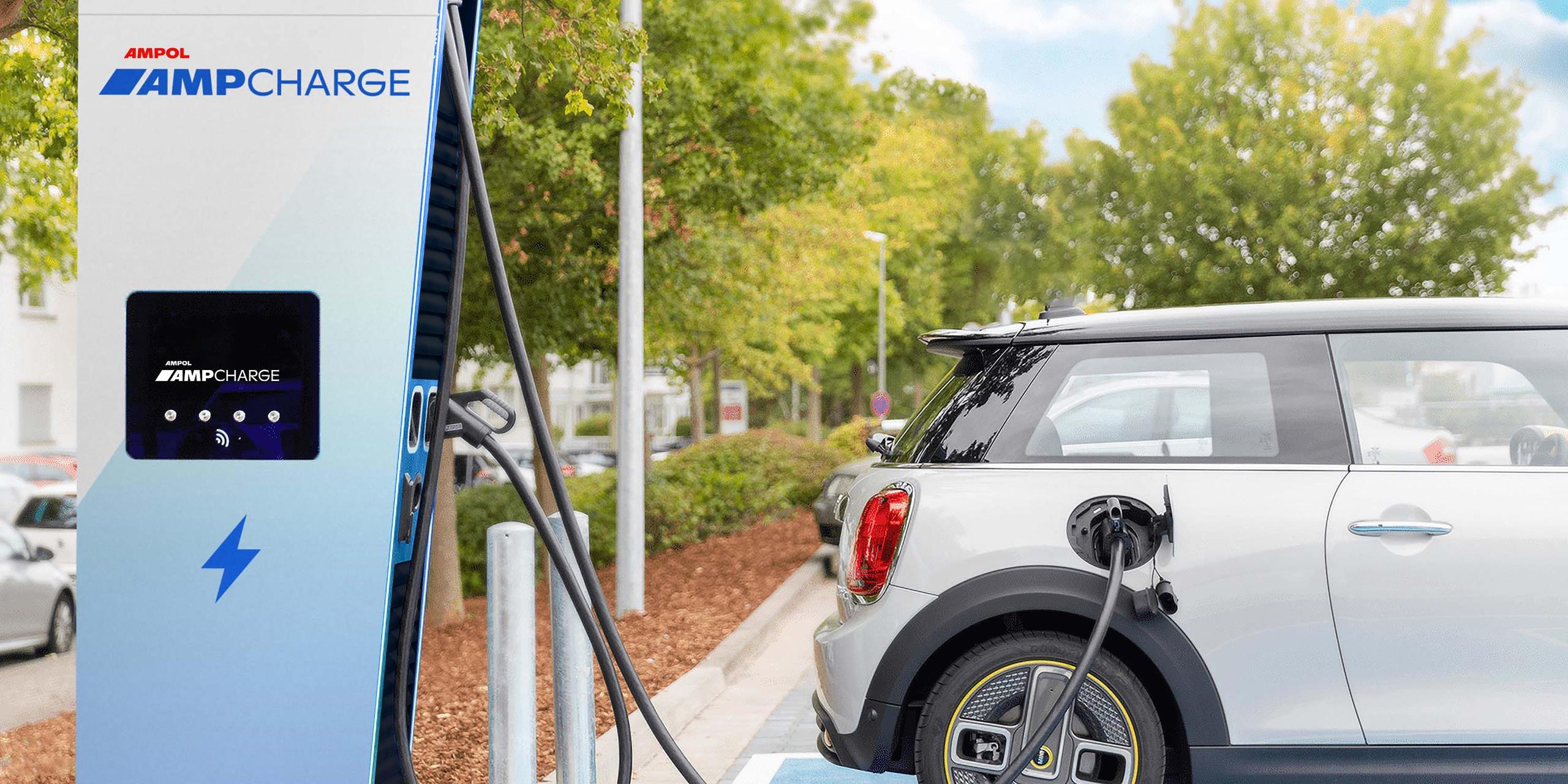
Ampol continues to grow its AmpCharge business, this week detailing plans to set up 19 electric car fast-charging hubs in Greater Sydney and regional New South Wales from 2023.
The plan, which will deliver a claimed 110 new charging bays across the sites in total, is being part funded by the state government’s Drive Electric Program to the tune of $9 million, tasked with supporting the rollout of EV infrastructure.
The new NSW sites will offer a minimum of four charging bays, with several to offer up to 10 bays, Ampol says. The infrastructure will be located at existing Ampol forecourts on “key commuter routes”, along with new destination charging sites at “major retail precincts”.
Ampol says it plans to commence “detailed design work” on these AmpCharge sites early in 2023. DC fast-charging units will provide “up to 150kW of charge per bay” and have the capacity to charge two EVs concurrently, the company adds.
Some – but not all – of these sites will include a behind-the-meter solar and battery system, currently in trial phase. But all energy used by these AmpCharge EV chargers will be offset by Large Scale Generation Certificates, the company promises.
Ampol managing director and CEO Matt Halliday says his company wants to establish “the leading EV charging network in Australia by 2030”.
“Our AmpCharge network continues to grow, and this new program of work will allow us to expand beyond our forecourts to include at-destination charging at shopping centres,” he said.
“We are also diversifying our forecourt charging offer by building our first charging hubs at high-traffic locations.
“These hubs will provide customers with a highly accessible and reliable charge solution along key highways, including at our M4 Eastern Creek service centre, where we plan to install up to 10 bays.”
AmpCharge’s site currently says the cost is 60 cents per kWh across its sites, paid for via its app or by card. There are no RFID cards available for now. Beyond offering public charging alongside fuel bowsers, Ampol wants to offer home charging solutions as well.
“AmpCharge are currently building a range of at home solutions to suit your needs and hope to make these solutions available soon,” the company claims. The NSW plan is an expansion of AmpCharge’s existing rollout of 120 national charge sites, which kicked off in August this year.
That venture was co-funded by the Australian Renewable Energy Agency (ARENA) through the Future Fuels Fund – to the tune of $7.05 million.
Ampol’s rival servo operator BP recently signed a deal with Australian DC charger company Tritium to establish a network of public chargers under its BP Pulse branding.
These sites are rolling out now with a price of 55c per kWh – the first located in Melbourne’s outer north-east.
We’re moving to a time where the typical servo has a few EV chargers, then, plus some decent food and coffee inside to spend money on while you wait. Moreover, the Chargefox operation now owned by Australia’s State-based motoring clubs has some serious competition.
Electric vehicle sales are spiking in Australia, albeit from a low base, and there’s some real momentum building.
September 2022 saw EVs hit nearly eight per cent market share for the first time in a single month, while the federal government has now pledged to create a new National EV Strategy paper.